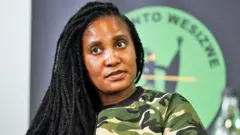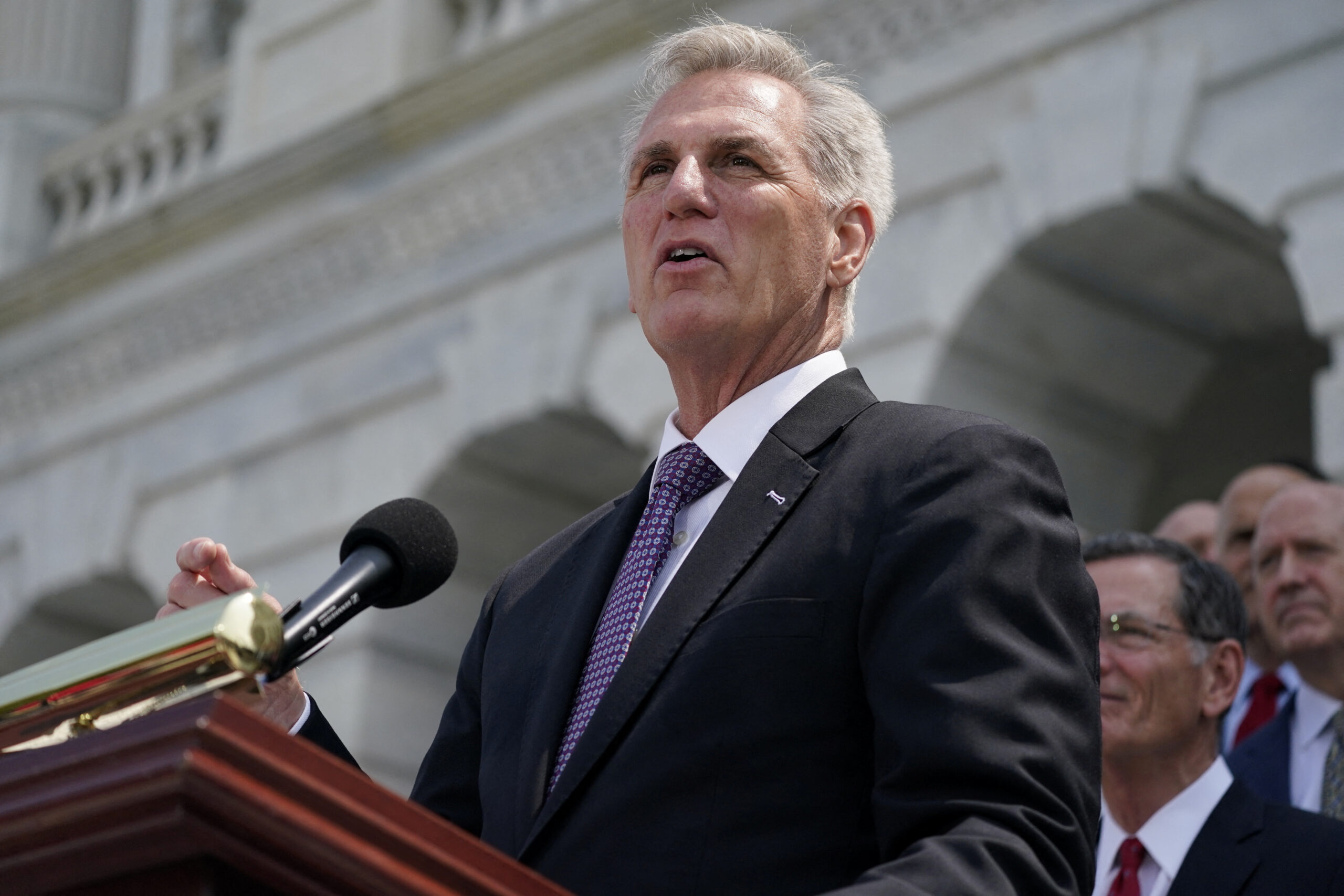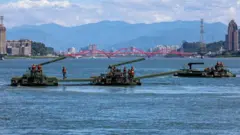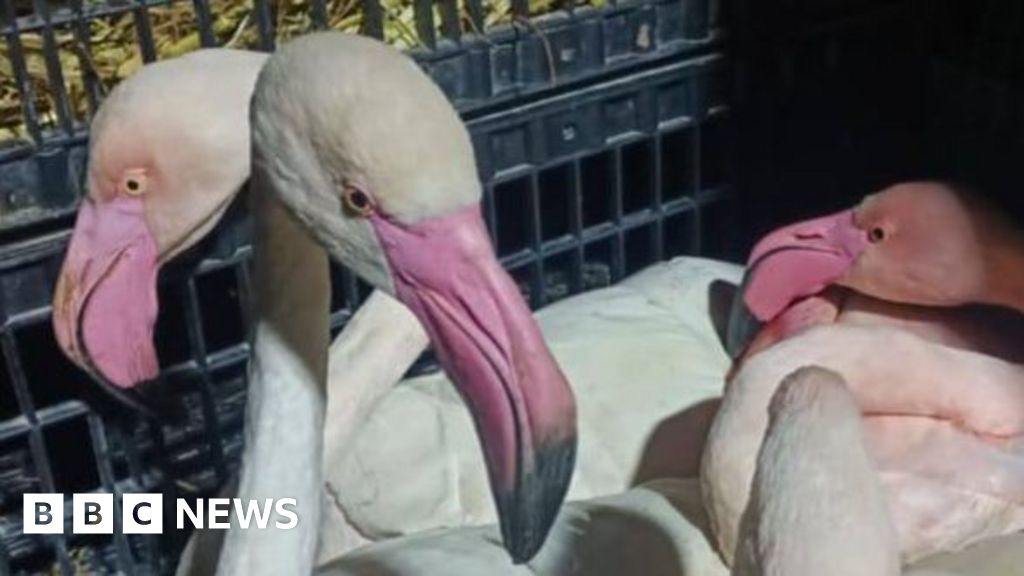Nomsa Maseko,BBC Africaand
Khanyisile Ngcobo,Johannesburg
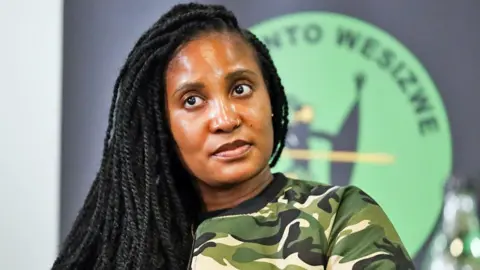 Gallo Images/Getty Images
Gallo Images/Getty ImagesThe daughter of former South African President Jacob Zuma has resigned as an MP following allegations that she tricked 17 men to fight for Russia as mercenaries in Ukraine.
Duduzile Zuma-Sambudla, who became a member of parliament for the main opposition party uMkhonto weSizwe (MK) last year, has said in an affidavit that she thought the men were going to Russia for “lawful” training.
MK says it was her decision to resign as she wants to focus her efforts on ensuring the return of those trapped in Ukraine’s war-torn Donbas region.
The brother of one of the men, who has been sending desperate voices notes about his situation, has told the BBC the family wants accountability and his safe return.
“Things you see in the movies, we’re seeing it live,” the 40-year-old said in one of the messages shared with the BBC by his family about the horrors they were being subjected to in Ukraine.
The BBC is withholding his identity for his safety, and has called him Sipho and his brother – who is in South Africa, trying to help secure his return – Xolani.
“He’s living in fear because he doesn’t know what the future holds or what will happen to him when night approaches because they are always in a war zone,” says Xolani, adding that the resignation of Zuma-Sambudla, whose father now leads MK, means nothing to the family.
“She’s just trying to save the reputation of her father’s political party… The families want accountability and the return of the men who were tricked into fighting for Russia.”
The BBC has heard voice notes Sipho sent in which he says he was recruited by two people – one of them being Zuma-Sambudla.
“They [the alleged recruiters] even bought us flight tickets to get here [Russia],” Sipho says in one of the voice notes. Zuma-Sambudla has denied intentionally misleading anyone and says she is “profoundly shocked”, adding that she herself is a victim of deception and manipulation.
Xolani says that his brother left South Africa on 8 July, thinking he was going to be trained as a bodyguard for MK.
The party has distanced itself from the controversy.
“The national officials have accepted comrade Duduzile Zuma-Sambudla’s decision to resign and support her efforts to ensure that these young South Africans are brought back safely to their families,” MK chairperson Nkosinathi Nhleko said at a press conference on Friday.
Formed in 2023, MK is named after the now-defunct military wing of the governing African National Congress (ANC) when it was fighting the racist system of apartheid in South Africa.
Ex-President Zuma was a long-standing member of the ANC, before breaking away to form MK to contest last year’s parliamentary elections after a massive fall-out with his successor, Cyril Ramaphosa.
The sister of another South African trapped in Donbas has told the BBC that her brother was recruited to receive “counter-intelligence” and “bodyguard” training for MK – an offer he took up because he was unemployed.
He did not expect to be in the battlefield under the command of Russian men.
“They are treated as slaves, told what to do, and if they don’t co-operate they are threatened,” she tells the BBC.
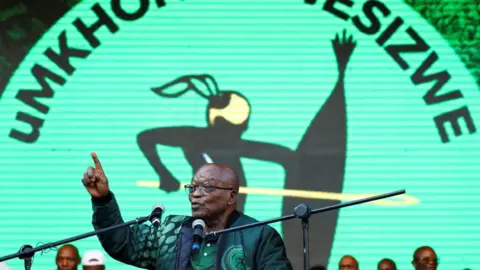 Reuters
ReutersXolani adds that when the group – including his brother – arrived in Russia, they were given contracts to sign but “unfortunately” they were written in Russian which they did not understand.
According to Xolani, the group then appealed to Zuma-Sambudla and the other alleged recruiter, whom he named, for help.
The duo then travelled to Russia, which Xolani says convinced the group to sign the contract as they “trusted them”, he says.
In a voice note to the family that the BBC has heard, Sipho says that he, along with the rest of the group, were taken to Ukraine in early August. They were then separated, and he was among those who ended up in Donetsk in Donbas.
“[We’re] close to the front line, maybe about 10km [six miles] away,” Sipho says in the voice note.
In a video screen recording shared with the BBC, from the WhatsApp group used by some of them, the men express their distress about their movements in the war zone.
In the group, one of them writes: “We were told that we are going to a safe place but we went even more deeper in the bad place. And when we arrived here, they [sic] were 3 drone attacks.”
Another says: “If anything happens guys… until next time.”
At some point, a contact is added to the WhatsApp group under the name “Duduzile Zuma-Sambudla”.
This person tries to allay the fears of the men as she appeals to them to “hang in there, we are doing everything we can”.
The BBC reached out to this number, but it went unanswered. We then sent a WhatsApp message to the number, which had an image of Zuma-Sambudla in the profile picture.
The former MP filed an affidavit with police after her half-sister, Nkosazana Zuma-Mncube, accused her of tricking South Africans to join the war.
On Tuesday, South Africa’s elite police unit, the Hawks, confirmed that both women had registered cases with the police.
The Hawks did not give any details, but said in a statement that “both matters are being investigated jointly to determine whether any criminality, including possible human trafficking, illegal recruitment, exploitation or fraud” had taken place.
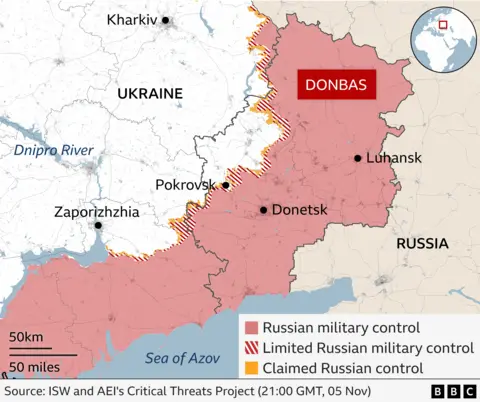
The BBC has seen a copy of Zuma-Sambudla’s affidavit, which is unsigned but was widely reported in local media.
“I was not a recruiter, agent, operator or facilitator of any unlawful activity,” she says.
The BBC has also seen a statement Zuma-Mncube gave police, alleging that her half-sister – along with two men, whom she named – lured 17 South Africans to Russia “under false pretences” and were “handed to a Russian mercenary group to fight in the Ukraine war without their knowledge or consent”.
“Among these 17 men, who are requesting the South African government for assistance, are eight of my family members,” Zuma-Mncube says in the statement.
In her affidavit, Zuma-Sambudla reveals that she herself had received non-combat training in Russia, and it was arranged by a man whom, she says, she did not know until he contacted her.
When he suggested recruiting more people to take part in what she believed would be a similar programme, she “shared [this] information innocently” with others, including family members, she says in the affidavit.
“I would not, under any circumstances, knowingly expose my own family or any other person to harm,” the MP adds in the affidavit.
The discovery that people had been tricked into joining the war had “caused me profound shock and distress”, she says.
“I am myself a victim of deception, misrepresentation, and manipulation,” Zuma-Sambudla adds in the affidavit.
Earlier this month, the South African government confirmed it had received distress calls from 17 of its citizens trapped in Donbas after being lured to join mercenary forces on the promise of lucrative contracts.
One of the voice notes the BBC heard says that 24 South Africans had originally been duped into going to Ukraine, but three of them were taken back to Russia as they were deemed to be medically unfit.
Another voice note says one of the South Africans who was forced to stay in Ukraine was wounded, possibly by shrapnel and his whereabouts are unknown.
A report by financial news agency Bloomberg said some men had also been recruited from neighbouring Botswana.
South Africa’s government has remained tight-lipped on the situation since its statement earlier this month. It had promised to work through “diplomatic channels” to bring them back home, but this has not yet happened.
With his brother still trapped in a war zone, Xolani speaks of his family’s anguish.
“We can go five days without hearing from him because he’s off doing military stuff. The family is concerned about his life,” he says.
In the meantime in voice-note exchanges with his family, Sipho keeps repeating the appeal: “It’s tough here… we all [just] want to come home.”
 Getty Images/BBC
Getty Images/BBC